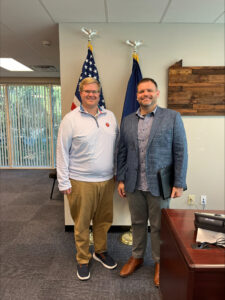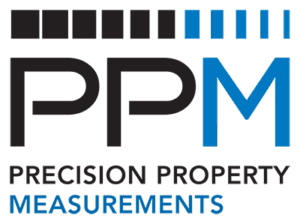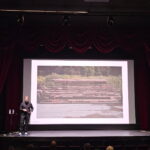Spring Lecture Recap
Brent Buck, AIA presented “Beginnings” on May 22nd for the 2025 AIA Central PA Spring Lecture. Brent is the founder & principal of Brooklyn based Brent Buck Architects, founded in 2018 after 10 years apprenticing at Tod Williams Billie Tsien Architects. Their Frame 122 project was featured on the cover of March’s Architectural Record and the work demonstrates a surprising confidence and sophistication for such a young practice.
Brent’s presentation included five meticulously designed buildings (single family and multi-family residential efforts in New York, Pennsylvania, & Connecticut) but he framed his comments around rethinking priorities in terms of being passionate about architecture, how one starts a practice, solely working with builders who care deeply about the work, material roots, and expressing handwork. He was very accessible and swiftly able to jump between big picture perspective and small details.
His work is undeniably contemporary but embodies a rich warmth. There is an unusual combination of polished luxe elements with rough common materials that suggests Carlo Scarpa as a big influence (in addition of the love for Venetian plaster) yet there is a fresh forward looking take that seems to confirm that his stunningly beautiful and bespoke structures are deeply rooted in design conversations within his office, with the clients, with the surrounding context, and with the builders charged with realizing the designs.
The social time after the lecture, as well as before, are welcome opportunities to not only catch up with colleagues but also have a chance to have a more personal exchange with the speaker.
Thank You to all the Sponsors – 12 sponsors made the lecture possible – and all the Attendees – we had another strong turnout and The West Shore Theatre has proven to be a very comfortable setting for the lecture series.
Design Awards 2025
The 2025 AIA Central Pennsylvania Design Awards submissions are now open! We encourage all AIA Central Pennsylvania architects to participate in the 2025 design awards. Please consider submitting your work that was the most meaningful to you. Built and unbuilt projects completed after January 2020 which have not previously received an award from the AIA Central Pennsylvania section are eligible. See all award submission criteria here.
IMPORTANCE OF DESIGN AWARDS
Local architectural design awards play a significant role in the development and recognition of the built environment at a community or regional level. Their importance can be summarized as follows:
Promoting Excellence
Encouragement of High Standards: They set benchmarks for quality, urging architects and designers to strive for innovation, sustainability, functionality, and aesthetic excellence.
Recognition of Achievement: Awards provide public acknowledgement to outstanding projects and the teams behind them, both motivating professionals and helping clients identify reputable talent.
Cultural and Community Impact
Reflection of Local Identity: Local awards often celebrate designs that resonate with the area’s cultural, historical, or environmental context, thus reinforcing local identity and pride.
Community Engagement: Winning projects often inspire public interest and dialogue about architecture, urban planning, and civic design.
Economic and Professional Benefits
Boosting Local Economy: Recognition can bring increased visibility and potential investment to the area, attracting further development and possibly tourism.
Professional Advancement: Award-winning architects and firms can leverage accolades for marketing, expanding their client base, and opening up new opportunities.
Innovation and Education
Showcasing New Ideas: Awards highlight innovative solutions to local design challenges, such as climate, urban density, or heritage preservation.
Educational Resource: The awarded projects serve as concrete examples for students, professionals, and the public, fostering greater understanding and appreciation of good design practices.
Sustaining Sustainability
Promoting Green Practices: Many local awards now focus on sustainability, rewarding projects that exemplify environmentally responsible design, which pushes the industry towards greener building traditions.
Policy Influence
Raising Standards: By providing models of what is possible, awards can influence planning regulations, local policies, and encourage municipalities and stakeholders to demand higher design standards.
In summary: Local architectural design awards are vital for fostering excellence, innovation, cultural pride, and sustainable development within communities. They help inspire both professionals and the public, shaping the future of the built environment in meaningful ways.
Government Affairs

AIA CENTRAL PENNSYLVANIA DISTRICT DAYS
Make plans to meet your Senators and Representatives to eliminate and revise local and state design roadblocks
PLAN AN APPOINTMENT DURING THE MONTH OF AUGUST
August 1 – August 31, 2025
Individual Appointments
District Days is AIA Pennsylvania’s annual grassroots advocacy event and an opportunity to mobilize the membership to meet with our state’s legislators to establish architects as a resource to address the challenges facing their district and the state. It’s also an opportunity to introduce and remind lawmakers of architects’ contributions and expertise throughout their districts and beyond.
The primary goal of the District Days meetings is to build relationships with legislators through discussions around work and life in the district. These relationships are critical to furthering the profession and AIA Pennsylvania’s standing as a go-to resource for our elected officials to position us for better outcomes when we call on them to support the architects’ position throughout the legislative session.
Steps for Advocacy Success
Here’s a step-by-step review of the District Days pre-meeting action items that will set you up for success.
1. Identify Your Legislators
Identify your state legislators (Senator and Representative) by inputting your home address in the “Find Your Legislator” feature. You will be asked to identify your legislators at registration.
2. Register with Your Availability
We encourage you to meet in person in your legislators’ district office or host a “take your legislator to work” visit. Register yourself or your office* with your preferences and availability for August by Friday, July 12, so we can get your meetings on the books.
3. Register for the District Days Primer
We will host a preparatory webinar date to be announced to cover a step-by-step roadmap for your meetings. On-demand replay access will be made available to those that cannot attend. All registered participants will receive the link to the webinar and a calendar invitation in mid July.
4. Review the Blueprint
Review the District Days “Blueprint” to participants, covering step-by-step guidance for in-meeting, post-meeting, and some helpful dos and don’ts.
5. Schedule a Pre-Meeting (if applicable)
Hosting your legislator(s) in your office? Do some reconnaissance to determine if your colleagues are constituents and invite them to participate in the visit/meeting. If you are meeting with your legislator in a group or hosting them in your office, schedule a pre-meeting with all participants/colleagues to adapt the blueprint to work for your group.
*If you are a Principal or Firm Leader, consider hosting your legislator(s) at your office. Legislators are elected to serve you based on your residential address. Suppose your legislator(s)’ territory does not include your firm’s office. In that case, we will look at several factors before extending the invite. A firm visit will allow your legislator to see firsthand how your work impacts clients and communities in their district, throughout the Commonwealth, and beyond.
This November we have the opportunity to exercise our right to vote and make our voices heard as a Nation. Please remember to vote this election season.
AIA Pennsylvania is and has been engaged with our State Politicians though the Political Action Committee (PAC) to advocate for our profession. Their involvement has directly affected legislation throughout the years and will continue to be a voice for Architecture. Please visit the PAC website https://www.paarchitectspac.org/ for more information on how to become involved and to donate.
WHY DONATE TO AIA POLITICAL ACTION COMMITTEE
Influence Public Policy & Support for Issues: Donations allow you to support causes, candidates, or policies you care about (such as environmental protection, education, healthcare, etc.).
Amplify Your Voice: Contributions pool your resources with others, giving your concerns more weight in legislative decisions.
Support Preferred Candidates & Elect Champions: PACs help elect officials who align with your beliefs and values, increasing the chance those priorities will be represented in government.
Balance Competing Interests: Your support can help counteract donations from groups with opposing interests.
Shape the Legislative Agenda & Policy Outcomes: PACs often advocate for specific laws or oppose measures that could negatively impact your interests—donations help fund those advocacy efforts.
Access to Lawmakers: Fundraising gives PACs the ability to interact with lawmakers, ensuring voter interests are heard directly.
Protect or Promote Your Profession/Industry & Defend Your Livelihood: Many PACs represent industries, trades, or professions; your donation can help protect jobs, regulations, or favorable business environments.
Stay Informed: PACs often provide updates on relevant legislative activities that could affect your job or business.
Civic Engagement & Active Participation: Donating is a way to take part in the democratic process beyond voting, ensuring you play a role in shaping government policy.
Strengthening Democracy: Active PACs promote political engagement and debate, which are vital for a healthy democracy.
Support Grassroots Movements & Leveling the Playing Field: Small donations to PACs can help grassroots movements compete with larger, better-funded organizations.
Accountability & Monitor Government Actions: PACs often monitor and report on official actions, keeping you informed and making government more transparent.
In summary: Donating to a Political Action Committee gives you a direct way to influence policy, support candidates and issues you care about, protect your professional and personal interests, and participate more actively in the democratic process
why are political action committee donations separate from dues. Political Action Committee (PAC) donations are separate from dues for several important legal, ethical, and practical reasons, especially in organizations such as unions, professional associations, or trade groups. Here’s why:
Legal Requirements | Campaign Finance Laws: U.S. federal law (as enforced by the Federal Election Commission) strictly prohibits the use of regular dues (often called “general treasury funds”) for contributions to federal candidates, parties, or direct electioneering. Only voluntary contributions to a PAC can be used for these purposes.
Separation of Funds: Organizations must keep PAC funds separate from their general operating accounts to comply with reporting and spending restrictions set forth in campaign finance laws.
Voluntary Participation & Personal Choice: Dues are required for membership benefits (such as access to resources, professional development, or collective bargaining), while PAC donations are voluntary and intended solely to support political activities.
Member Rights: Members cannot be compelled to support political causes or candidates they may not agree with as a condition of membership. This respects individual political preferences and protects organizations from legal challenges.
Transparency and Accountability & Clear Reporting: PACs have to disclose their contributions and expenditures to the government and their donors. Keeping PAC donations separate ensures financial transparency and prevents accidental co-mingling of funds.
Maintain Trust: Members can see exactly how their PAC contributions are used, fostering trust in both the PAC and the parent organization.
Different Purposes | Dues: Pay for the general operations and services of the organization, such as staffing, programming, events, and advocacy (not involving direct contributions to political candidates).
PAC Contributions: Specifically support political campaigns, candidates, or lobbying efforts permitted under campaign finance laws.
Protection of Tax Status
Nonprofit Rules: Many organizations enjoy tax-exempt status (like 501(c)(3) or 501(c)(6)). To maintain that status, they must rigorously separate standard operations from political activity, which is limited or forbidden for nonprofits.
In summary: PAC donations are kept separate from dues to comply with the law, protect individual rights, maintain organizational transparency, clarify financial purposes, and safeguard the organization’s legal and tax status. This separation is fundamental for both ethical governance and regulatory compliance.
AIA Central Pennsylvania Special Awards
Each year, AIA Central PA seeks to honor and recognize individuals within our community who have contributed in ways that extend far beyond expectations. These special awards celebrate those whose exceptional achievements, contributions, or character distinguish them from their peers. We invite you to help us acknowledge and celebrate these outstanding individuals whose dedication and impact make our community stronger. Help elevate your peers, learn more and submit a nomination for the Young Architect Award or the Distinguished Service Award.
More about the Young Architect Award
More about the Distinguished Service Award
Both award winners to be recognized at the Annual Conference, Expo and Design Awards on September 18th.
The Design Professional’s Role in Special Inspections
Written by C.S. Davidson
Special inspections are a crucial part of the International Building Code (IBC) because they ensure buildings are constructed according to the approved design. They promote a high standard of safety and quality; however, special inspections are often undervalued. Design Professionals play a pivotal role in ensuring compliance and successful project execution through utilizing special inspections.
Chapter 17 of the IBC defines the requirements for testing and inspecting materials and assemblies, as well as the qualifications of the agency performing the tests and inspections. Materials requiring special inspections include structural steel, concrete, masonry, wood, soils, foundations, fabricated structural items, components for wind and seismic resistance, fire-resistant materials, EIFS, and smoke control. IBC also lists “special cases” as a catch-all phrase for items critical to life, safety, and protection of property. Special inspections are not required for construction of a minor nature and Group U occupancies.
The first step in complying with the requirements of Chapter 17 is to select a Design Professional in Responsible Charge (RDC). This professional prepares a Statement of Special Inspections (SSI), which is included in the construction documents or submitted with the permit application. The SSI must be project-specific and include a list of the materials or systems requiring inspections or testing, the type and extent of each inspection or test, the frequency (continuous or periodic), and the agency responsible for performing the inspection or test. The RDC must ensure the inspection or testing agency is qualified and independent from the contractor performing the work. The best practice for special inspections is for the third-party agency to be employed directly with the owner, not the contractor.
Because most special inspections and testing pertain to structural assemblies, the structural engineer of record is the likely choice for acting as the RDC; however, the entire design team should coordinate the overall requirements for the project. Non-structural components are often deferred to the architect or mechanical engineer.
The IBC requires special inspection and testing reports to be submitted directly to the building official and the RDC. Throughout construction, the RDC should review and maintain records of all inspections and testing; any discrepancies or non-compliant test results must be brought to the attention of the contractor, building official, and RDC. Corrective action also needs to be approved and documented.
Before the Certificate of Occupancy can be issued, the RDC must certify that all special inspections and corrective measures comply with the requirements of Chapter 17 and that the completed work aligns with the approved plans and specifications. Additionally, the third-party agency shall issue a letter stating that they have completed all required inspections and that any discrepancy noted in their reports has been resolved.
Design Professionals play a vital role in the special inspection program. By preparing detailed, project-specific SSIs, selecting qualified inspection and testing agencies, and thoroughly reviewing reports, they limit their professional liability but more importantly, protect public safety and deliver high-quality outcomes.
Become an ACE Mentor Today!
The ACE Mentor Program’s mission is to enlighten, engage, and encourage high school students in the pursuit of careers in the integrated construction industry. ACE accomplishes this mission by providing a structured academic curriculum and guidance on the many aspects of the industry, both technical and professional. Students that successfully complete the ACE program are eligible to receive a scholarship to assist in their pursuit of an industry-related education after high school.
ACE Mentor Program has been active in Central PA since 2007. Student participation is entirely voluntary, and ACE offers academic programs in Cumberland, Dauphin, Lancaster, and York Counties beginning in the fall and concluding in the spring of each year. For the 2017-2018 academic year, more than 100 students from 24 schools are enrolled in programs offered by ACE’s Central PA affiliate.
EPiC Summer Series
AIA Central Pennsylvania is excited about the Emerging Professionals Summer Series. This is a series of events both virtual and in person designed to support the next generation of architects in our region. This series is lead by Elysia Mikkelsen and Joshua Silbaugh. Please reach out to them for any additional information or questions. We look forward to seeing you at one or all of our events this summer.
July 1st – Virtual Event | NCARB Update
July 21st – In Person Event | Firm Crawl
Call for Member Articles
AIA Central PA would like to feature scholarly articles / blogs related to our profession in each quarterly newsletter. This is an excellent opportunity to have your article published and available to your fellow architects / engineers in Central PA. If you are interested in submitting an article or blog please send your inquiries to Brett Hallacher at bhallacher@rlps.com. This is an excellent opportunity to showcase your expertise and contribute to the professional development of your peers.
Membership Notes
We value you as a member and appreciate your feedback. Please let us know what we can do to continue to support you. Please reach out to Susan Frear at any time. Remember to log in and update your profile information at aia.org. It is highly recommended that you join knowledge groups for more information about your personal interests. Please let Susan Frear at AIA PA know if you have any questions about dues or membership. sfrear@aiapa.org
Upcoming Events
REGISTER FOR UPCOMING AIA CENTRAL PA EVENTS
REGISTER FOR UPCOMING AIA PA EVENTS.
Job Opportunities
View the latest positions posted to our job board!
Hiring? Submit your position HERE













